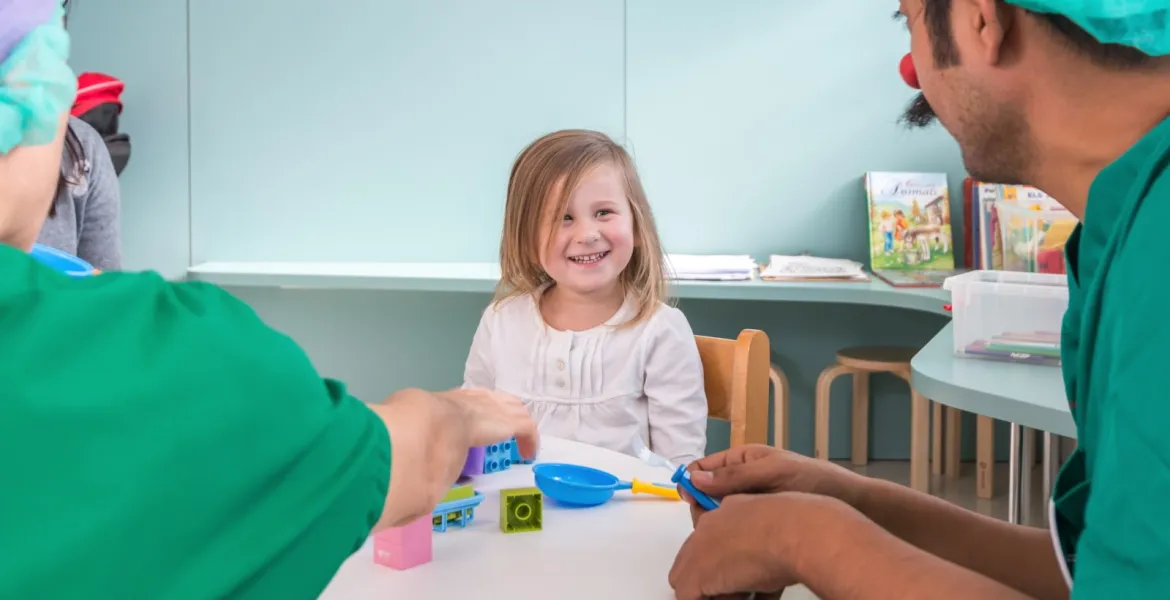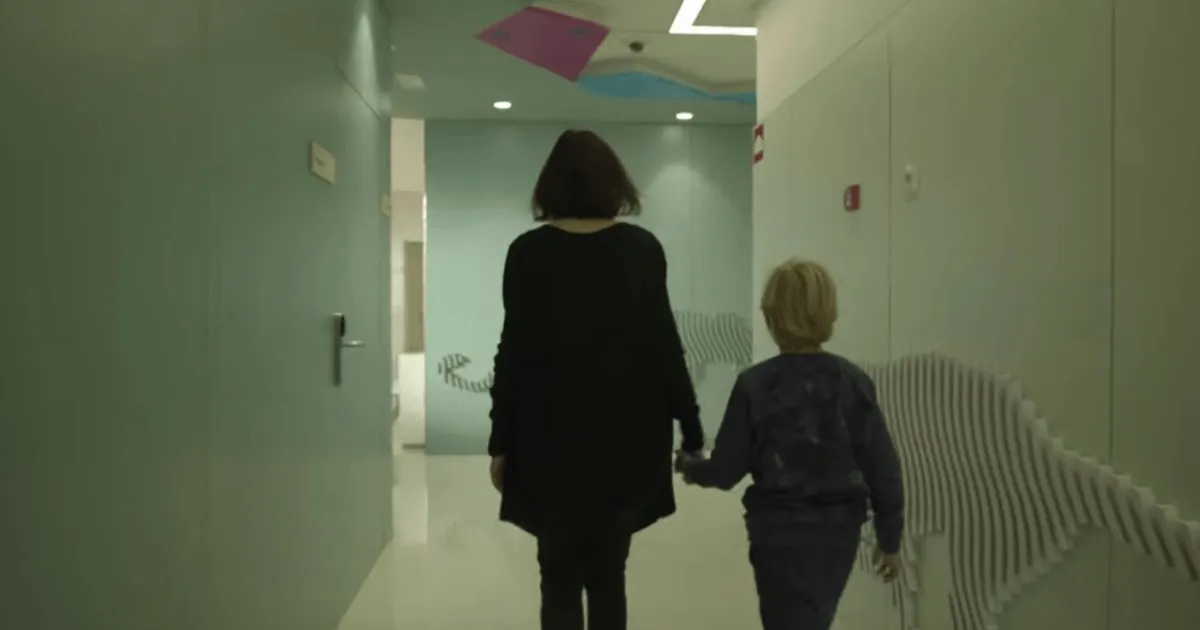
Get to know the Ambulatory Surgery Unit (UCA) and find out how to prepare an outpatient intervention to return home safely.
The Ambulatory Surgery Unit (UCA) at SJD Barcelona Children's Hospital performs surgeries that do not require admitting the child to hospital. Ambulatory surgery can be performed with local, regional or general anaesthesia. If there are no complications, these surgeries allow the patient to return home a few hours after the operation.
Get to know the Ambulatory Surgery Unit (UCA)

IMPORTANT
If in the days prior to the surgery the child has fever, vomiting, diarrhoea, bronchitis or any contagious disease such as chickenpox, call us from Monday to Friday from 8:15 a.m. to 2:30 p.m. on the telephone number +34 93 253 21 00 (ext. 72452).
Where the UCA is located
The Ambulatory Surgery Unit is located on the 2nd floor of the Hospital. It can be reached from the main lobby (which is accessed through the square) and is at the back, on the left hand side.
What the family should know prior to the surgery
- We will call you 24-48 hours before the surgery and also on the day after.
- We will be happy to resolve any doubts you may have during these phone calls.
- We will give you all of the information you need about what you have to do before the operation, the documentation you will need and also what you have to do afterwards, when you are back at home.
- We will tell you for how many hours your child should fast, depending on their age, and the type of surgery that will be performed.
Instructions for the day of the surgery
- It is very important that children come to surgery on an empty stomach so that they can be given anaesthesia or sedation. Failure to follow this guideline could put the patient at risk or force the postponement of the surgery.
- Children should arrive clean and freshly showered or bathed from head to toe.
- They should not be wearing makeup or fingernail polish. Leave their earrings, rings, bracelets, necklaces and piercings at home.
- You need to bring a bag with a toiletry bag, pyjamas and slippers.
- Patients may be accompanied by one adult during their stay in hospital, which will be a few hours. No one may accompany the child into the operating room.
- You must return home using your own vehicle.
Requirements for ambulatory surgery
For a patient to be eligible to undergo an ambulatory surgery, the following conditions must be met:
- The child is over 6 months old and has a benign condition.
- The surgery has a low bleeding risk, lasts less than one hour and requires little post-operative healing.
- The family lives close to the hospital, in the event of any emergency.
- The family must have its own vehicle and telephone.
- The parents should take part in the child's healing process, observe him/her during the post-operative period, and administer analgesic drugs orally or rectally.
Anesthesia techniques that can be used
Ambulatory surgery can be performed with local, regional or general anaesthesia. Medical discretion prevails over the family's choice, but if possible the technique is agreed upon according to the needs of each patient and the surgery to be undertaken.
We are a leading unit for inhalation anaesthesia, a technique that offers children the possibility of inhaling the anaesthesia easily, through a mask, to avoid at least one of the dreaded injections before surgery.
Benefits of outpatient surgery
Not having to admit the patient also reduces hospital infections and the rate of post-surgical complications. Once the surgery has been performed, we give guidelines to the families so they can administer oral medication to the patient to control the pain and prevent possible infections.